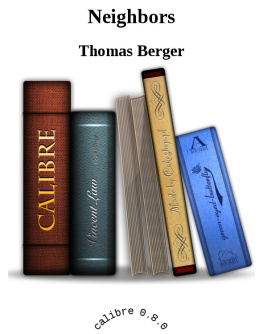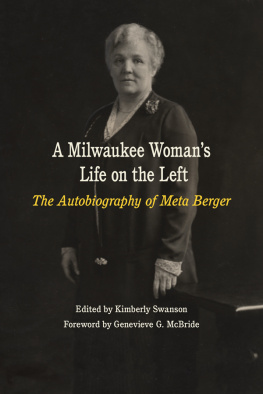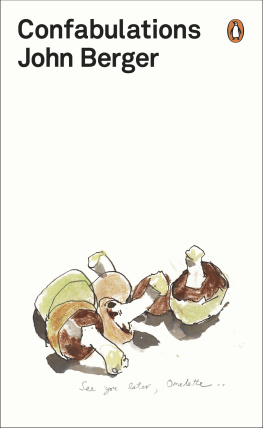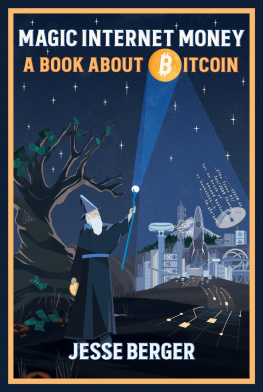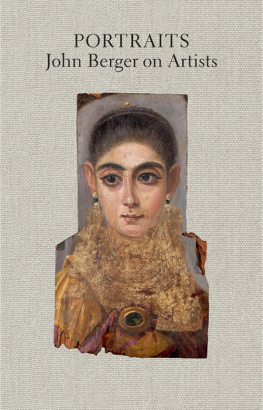Neighbors
Thomas Berger
SIMON & SCHUSTER PAPERBACKS
New York London Toronto Sydney
ALSO BY THOMAS BERGER
Adventures of the Artificial Woman
Arthur Rex
Being Invisible
Best Friends
Changing the Past
The Feud
The Houseguest
Killing Time
Little Big Man
Meeting Evil
Nowhere
Orrie's Story
Regiment of Women
The Return of Little Big Man
Robet Crews
Sneaky People
Suspects
Who Is Teddy Villanova?
THE REINHART SERIES
Crazy in Berlin
Reinhart in Love
Vital Parts
Reinhart's Women
SIMON & SCHUSTER PAPERBACKSRockefeller Center1230 Avenue of the AmericasNew York, NY 10020This book is a work of fiction. Names, characters, places, and incidents either are products of the author's imagination or are used fictitiously. Any resemblance to actual events or locales or persons, living or dead, is entirely coincidental.Copyright 1980 by Thomas BergerAll rights reserved, including the right or reproduction in whole or in part in any form.SIMON & SCHUSTER PAPERBACKS and colophon are registered trademarks of Simon & Schuster, Inc.Library of Congress Catalog Card Number: 79020307ISBN: 0-7432-8759-2Visit us on the World Wide Web:http://www.SimonSays.com
TO HERMAN SINGERNEIGHBORSCHAPTER 1
I T would have been nice," said Earl to himself as much as to the wife who sat across the coffee table from him, "to have asked them over for a drink.""We can certainly do that tomorrow," said Enid. "Nothing is really lost.""But of course tomorrow won't be the
day they moved in, will it?" Keese reflectively sipped his transparent wine. "I find that if something is done when it should be done, it is not forgotten. Still, I suppose it's no tragedy. We could probably get away with giving them no formal welcome whatever. It's scarcely a true obligation.""You mean, like giving food to a starving person?""Exactly," said Keese. He rose and headed for the kitchen. While passing through the dining room, which was papered in a pale-gold figure, he bent slightly so that he could see, under the long valance and over the window-mounted greenhouse, into the yard next door. Despite what he believed he saw he did not break his stride. In the kitchen he looked again: it was a large white dog, in fact a wolfhound, not a naked human being on all fours.Were Keese to accept the literal witness of his eyes, his life would have been of quite another character, perhaps catastrophic, for outlandish illusions were, if not habitual with him, then at least none too rare for that sort of thing. Perhaps a half-dozen times a year he thought he saw such phenomena as George Washington urinating against the wheel of a parked car (actually an old lady bent over a cane), a nun run amok in the middle of an intersection (policeman directing traffic), a rat of record proportions (an abandoned football), or a brazen pervert blowing him a kiss from the rear window of a bus (side of sleeping workingman's face, propped on hand).This strange malady or gift had come upon Keese with adolescence. Never had he been duped by it. Indeed, the only inconvenience it had brought him had been by reason of the unusual skepticism it had engendered. On occasion reality
did take a bizarre turn:
there were persons who kept pet pythons, which escaped and were subsequently discovered sleeping peacefully at a drive-in movie three miles from home. If Keese saw such a phenomenon he assumed it was the usual illusion. He had doubted his eyes when seeing a nude fat man ascend the front steps of a public building. But this man had been real, and a rearview photo of him appeared in next morning's newspaper. (He had eluded the police, and his motive remained obscure.)Keese admitted to himself that, very rarely, some outlandish vision of his might be to some degree or even wholly authentic; but since he had no standard of measurement he must, in self-preservation, consistently reject the evidence of his eyes. In this basic way he was at odds with the rest of humanity as to one of its incontestable truths: seeing is believing.He now opened the refrigerator and found the bottle of wine, which lay horizontal. As he had feared, it was leaking at the cork, and a little pool had formed on the lid of the crisper below. While wrinkling his nose at this he heard a tapping at the glass of the back door. Pleased to be so distracted, he straightened himself and went in response. While on this route he expected to view the caller through the large clear pane of the door-glass, from which furthermore the curtains had been temporarily removed for laundering. But he saw no one until he reached and opened the door, and then he espied the wolfhound, some eight feet off and loping. He supposed that the animal could have done the tapping: no other candidate was, at any rate, in evidence.He took the bottle of wine to the living room."They must have a dog," he said to Enid."That could be bad news," his wife replied, placing her stemmed glass judiciously on the coffee table. For a number of years now Keese had observed his wife only by means of what she did: that is to say, he saw the actor only through the action. She was invisible to him when motionless."Well, let's hope not," said he, making a wry toss of the chin and elbowing an imaginary companion.Enid stood up. "I imagine that some dinner wouldn't be amiss.""At this juncture," said Keese, completing the old family-phrase, the origins of which had been mislaid: some movie or play of twenty years before.Normally a tall woman, Enid looked markedly larger than usual, but dwindled to her usual size as she left the room. Keese realized that the sofa, where he sat now, was subtly lower than the chair he generally used at this time of day. Not only did he see reality from a somewhat less favorable situation, but the thickness of his middle body knew an unpleasant pressure from his belt buckle. Being alone in the room, he had no reason to suppress a tendency towards extravagance, and making a hideous expression, he positively hurled himself erect.He was heading for his habitual chair, in which, by contrast to its thick upholstery, he felt thinner, when the doorbell, a dull gong, sounded. Keese was now sufficiently old (viz., forty-nine) to hear as ominous all summonses for which he had not been furnished with advance warning, and he was especially dubious about any that came in those few hours which constituted dinnertime for persons of his sort.He went apprehensively to the door, opened it partially, and exposed to the caller a diagonal view of the entrance hall of his home as well as about four-fifths of himself, keeping a forearm and a calf concealed and readied for leverage if needed.For a very brief instant, looking headwards as he was, he could not identify the person by sex, for he saw a turban and under it a face which though not that of an East Indian was colored almost olive. It wore no make-up, and while the skin was flawless the features were not so delicate as to require a feminine designation.But then Keese saw the two remarkable cones that projected themselves from her thorax. Though beneath the glistening, hard-finished blouse of oysterish synthetic they connoted more of rocketry than mammalia, once he had identified her sex he was no longer in doubt as to his own style."Hello," said he, showing a pleasant face, "and what may I do for you?""Anything you like," said the person on his doorstep. In age she had apparently just crossed Keese's arbitrary line between girl and young woman. He had not been prepared for her literalization of his greeting, which was a piece of standard usage and not a cliche to be derided. Nevertheless, with his bias towards a creature of her sex and years, he decided that he was himself at fault and he listened smilingly to the punch line which completed her opening speech: "The problem is what you want in return."Having made her jest, she glowered momentarily and then produced the sort of laugh which seen on silent film would suggest by its physical violence that the original had been deafening, but in point of fact very little sound was heard. Her teeth were huge.Keese fell back a centimeter in mock horror, with an appropriate flash of palms. "Miss, I assure you my intentions are honorable." He liked nothing better than such banter.But the young woman seemed suddenly to show anxiety. Staring fearfully at him, she said: "I'm Ramona." Her next statement was almost a question. "I moved in
Next page
